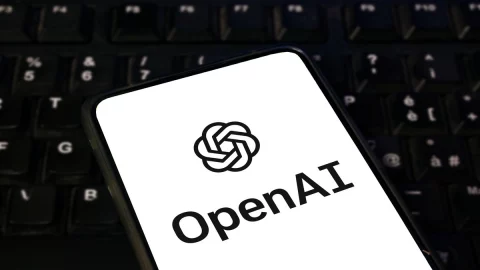Making Veneto and Italy an innovative ecosystem and who knows, churning out the Italian Zuckerberg one day. The vision of Riccardo Donadon, who today inaugurated the new Campus of H-Farm, founded in 2005 as a startup incubator and now a platform that brings together training, research and business, has actually already partially come true. In fact, here, in the Ca' Tron estate (Treviso), owned by Cattolica Assicurazioni which has believed in the project since the beginning, the first large successful Italian startup was incubated, the app for buying and selling clothes Depop, on its way to becoming a 1 billion revenue unicorn. Here today important international realities such as Cisco, Vodafone, LG, Audi, but also LVMH, Adidas and Luxottica, which right here signed the agreement for Google Glass with Google, participate in this sort of small Italian-style Silicon Valley. The training program has also received the official approval of Apple, as well as the support of Cassa Depositi e Prestiti.
Today, after a troubled journey that began in 2016 and slowed down first by bureaucracy and then by Covid, the H-Farm Campus is ready to welcome entrepreneurs, professionals and, above all, more than a thousand students, for which the first bell of the 2020-2021 school year will ring on Tuesday 8 September, earlier than in Italian public schools and in maximum safety, given the large spaces available. In fact, the extension is over 51 hectares, where there are 10 new structures dedicated in particular to training, but also to the world of startups and businesses, for a total of 30.000 square meters of new covered area. However, an entirely zero-volume space, thanks to the recovery of the volumes of abandoned buildings already present in the affected area and the demolition of a former military base, and completely self-sustainable from an energy point of view, thanks to the use of renewable energies ( photovoltaic and geothermal).
In addition to the buildings dedicated to training and capable of accommodating up to 2.000 students, the Campus also houses a 244-bed student residence, a large sports center, as well as a 27-hectare green area open to the public. But how does H-Farm intend to train the talents of the future, changing the paradigms of the school system with a courageous and totally new experiment? Raising them on bread and innovation. Here we study from the elementary classes in English (with Italian relegated to a separate subject) and the methods are at the cutting edge of technology: laboratories, digital devices, virtual reality platforms such as H-Olodeck, capable of putting people through holograms and as pertinent as ever in this precise historical phase characterized by smart working and e-learning. However, the goal, and the structure is suitable for doing so, is to carry out the ambitious live training program, thanks to the team of 240 teachers, almost all native English speakers, who are part of H-Farm's total 640 employees.

Here there is also the university and some postgraduate masters, in collaboration with the Ca' Foscari university and oriented towards digital management. The enrollment fee is 7.500 euros per year, with the possibility of scholarships and receiving contributions based on income, as in a public university. The tuition fee is a little more elitist, ranging from 8.000 euros for kindergarten to 16.000 for the last two years of high school. A postgraduate master's degree can cost more than 21.000 euros, but H-Farm is already very well positioned in the international ranking, thanks to the collaboration with some US companies.
In short, in the heart of the Veneto countryside (in the province of Treviso but not far from Venice and from the headquarters of Generali Italia in Mogliano Veneto) what Riccardo Donadon and his staff define as “a cluster that attracts as much talent as possible. A place to bring together companies, students, creatives, a place that 15 years ago – according to Donadon – it was the first startup incubator in the world and which now builds 50-60% of its almost 100 million turnover through consultancy to companies for digital transformation and which increasingly focuses on education. A place to create "critical mass" on innovation, which will break even in 2023-2024, at the end of the five-year industrial plan which aims to reach 126 million euros in turnover, with a positive Ebitda of 12 million.
The Campus expansion project was financially supported by a closed, non-speculative real estate fund called “Ca' Tron – H-Campus” and managed by Finint Investments SGR (the asset management company of the Banca Finint Group), with a assets of over 101 million euros. The fund was 100% subscribed by institutional investors: Cattolica Assicurazioni, which owns the land, holds the majority stake (60% of assets), CDP Investimenti SGR (Cassa Depositi e Prestiti Group), with the FIA 2 fund “Smart housing, smart working, Education & Innovation, 40%.
This is how Riccardo Donadon, founder of H-Farm, commented on his creature: “In recent years we have witnessed how technological acceleration has imposed the rewriting of many business models and has projected us towards new services, products and lifestyles, also having a significant impact on the world of training with a progressive increase in digital-related content, capable of satisfying not only the youngest, but all those who feel the need to keep up-to-date and train by getting more and more familiar with the new and constantly evolving tools. In recent months, after the global health emergency, we have seen how change is destined to accelerate a lot, changing not only the contents but also the models and tools. The cultural transformation induced by digital is forcing us to rethink how to dialogue with consumers and how to rewrite the internal processes of companies".
“In the same way – concluded the entrepreneur from Veneto -, in schools and universities and in training in general, we need to rethink the software platforms for dialogue with students and reorganize school staff, teachers and staff. We are working a lot on these issues because we are convinced that the world of training is starting to experience its great transformation and it is doing so very quickly. And now it is no longer just a theme of tools or contents, but also of places. In an increasingly digital world that runs and evolves continuously, where values are profoundly different, it is anachronistic to give birth to a place that thinks only of training, or only of doing business, or only of doing research. These three things must go together and inspire each other. We are convinced of this and our Campus is the answer to this new trajectory".
“The one inaugurated today – finally added Paolo Bedoni, president of Cattolica Assicurazioni – is a great work resulting from the virtuous convergence between people, institutions and companies and between the public and private sectors. Cattolica immediately believed in the project with the commitment to fill the concepts of territory and sustainability with content, creating a bridge between tradition and innovation. We have grasped the enthusiasm of being able to build an opportunity for the future of our young people and we have all worked together, against all resistance, even against Covid, to convey a positive message to the whole country. Veneto has worked to give an opportunity and not to ask for something, to offer development possibilities. We are here to inaugurate a school, the most innovative of schools. And it should not be forgotten that the future of a community grows around a school”.




